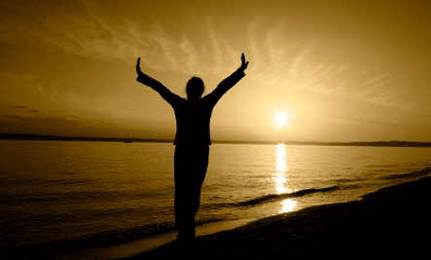
When I was a young Zen student living at Green Gulch Farm in Northern California, one of my teachers was Harry Roberts, a Yurok Indian-trained shaman, naturalist, cowboy, and Irish curmudgeon.
One day he asked me, “Do you want to know the three most important tasks of being a human being? The first is to quiet the busyness in your mind. The second is to find your song. And the third task is to sing your song.”
Harry’s three essential tasks are what I now consider the essential underpinnings for transforming busyness into composure and results.
Mindfulness is the practice of paying attention to our inner life and the world around us. It begins by noticing how busy our minds are, how easily and habitually our minds jump from thought to thought, often residing in the past or in the future – anywhere but right here, right now.
Quieting the mind generally begins with taking the time to be still, to be quiet, and paying attention to the breath and body. It does not mean we stop thinking, but we reduce the noise and increase our focus and concentration.
This process is like applying WD-40 to our minds. Increasing our awareness and paying conscious attention to our inner and outer life loosens the somewhat hardened or rusted parts of our thinking.
Often, without even noticing, we get a bit stuck in mental habits and assumptions that underlie and drive our thinking. Applying some attention can loosen these patterns.
This can mean increasing our ability to either narrow or expand our focus – whichever is most effective and refreshing to our habitual ways of thinking.
Quieting the busyness in our mind can open the door to experiencing the sacredness of life in general and our own wondrous life even in the midst of everyday activities.
It is something we can practice at any time, in any moment when we want to let go of the activity-driven busyness that can make us feel so depleted.
Find Your Song
Finding your song describes your ability to access your deep power – which is your appreciation for being alive. This embraces both who you are and all that you have right now as well as the greater possibilities you imagine and envision for the future.
We can only hear our song when our minds are quiet, when we can reflect on what is truly engaging and important to us – what brings us the greatest sense of belonging and of accomplishment.
Finding our song means discovering what in Zen Buddhism is called our fierce and tender heart, where we feel deeply connected to all that surrounds us.
Though our jobs and professional careers are important, our song is much deeper and wider than our work. Our song includes our way of being in the world, our personal relationships, our daily routines, and how we create a sense of community.
Sing Your Song
Results matter. Accomplishment is important. Your observable, concrete actions do have weight. At the same time, I believe part of Harry Roberts’ message is that your song is always available. You can choose to sing your song – that is, have a positive effect on the task at hand and feel personally productive – any time and any place, in small or large ways.
Where you live and work and with whom you work matter tremendously. How you express your deepest longings and intentions are vitally important to enlisting others in your vision and in taking steps toward implementing that vision.
Singing one’s song is simply a rather poetic way of reminding us that no matter what our circumstances are, we can engage them effectively and with as much personal satisfaction as possible.
Author : Marc Lesser
Source : www.care2.com




